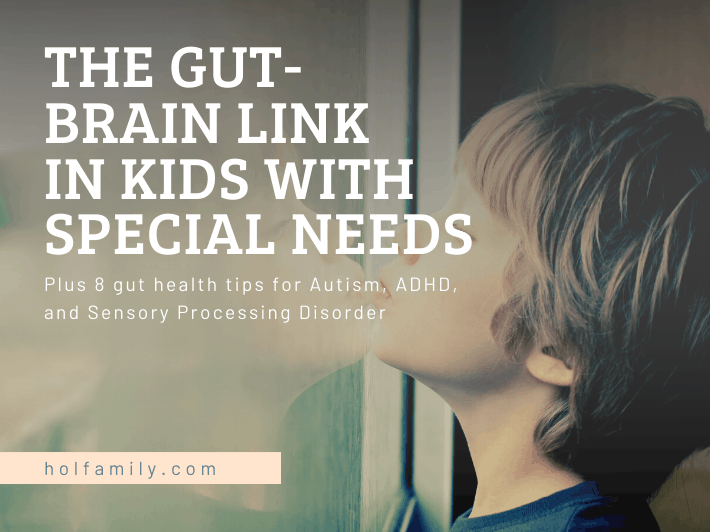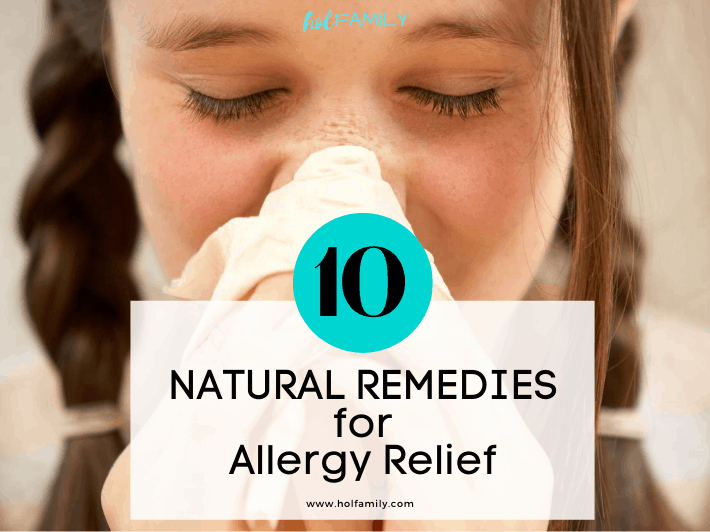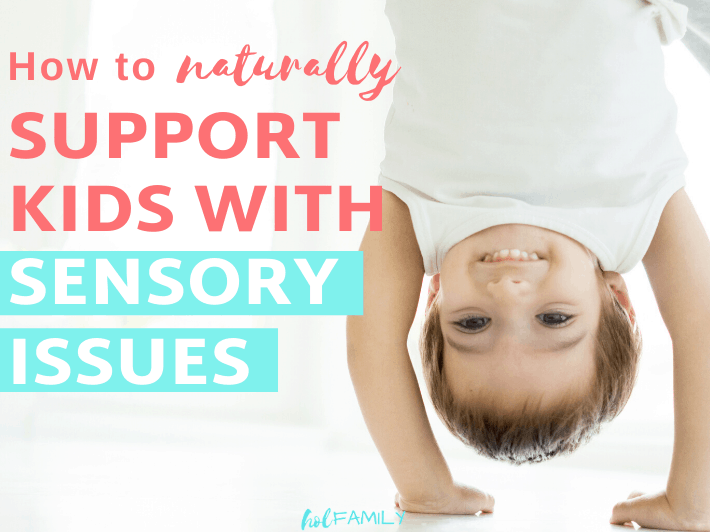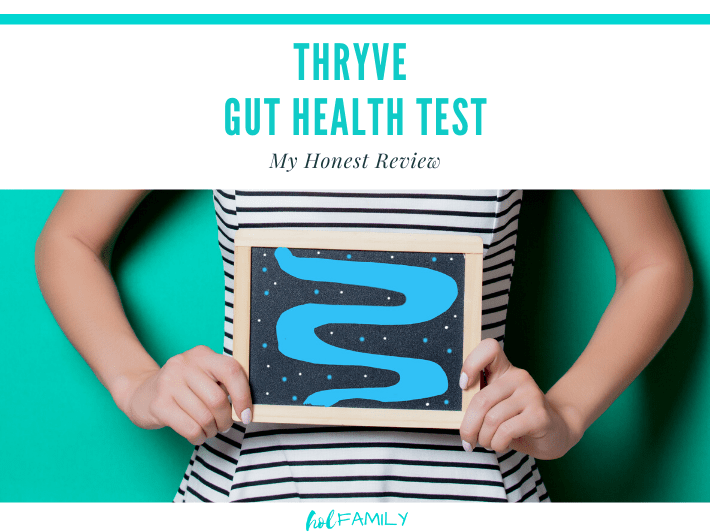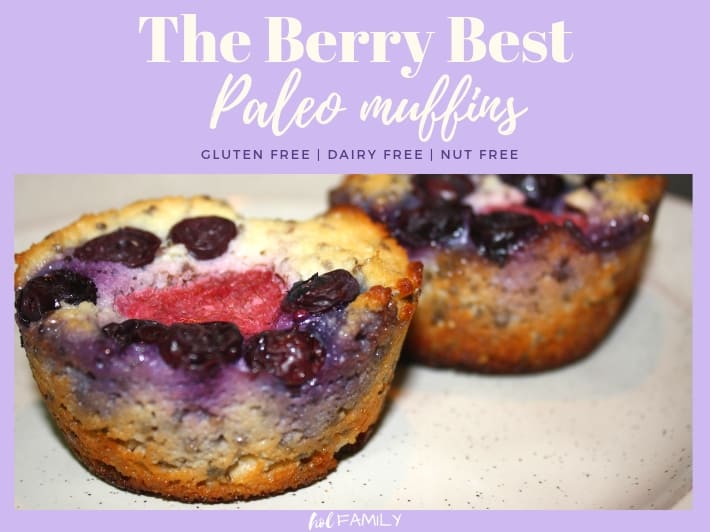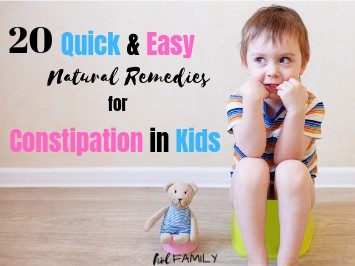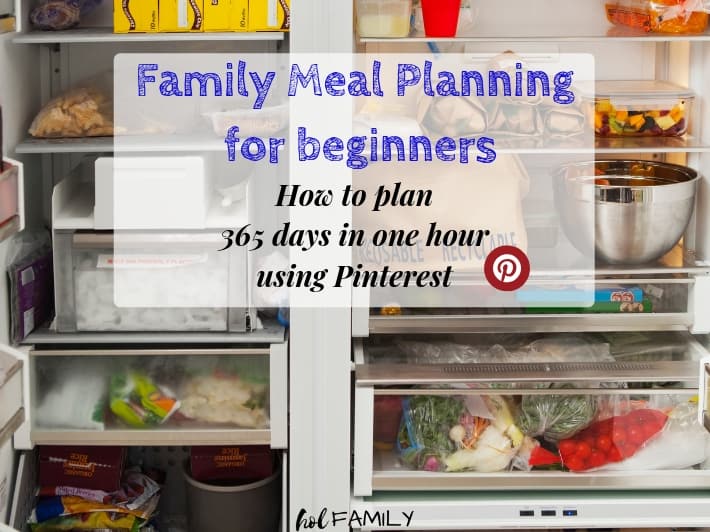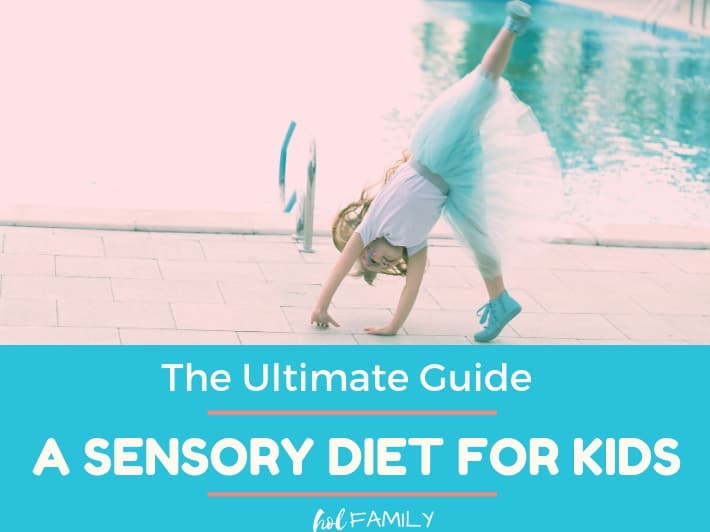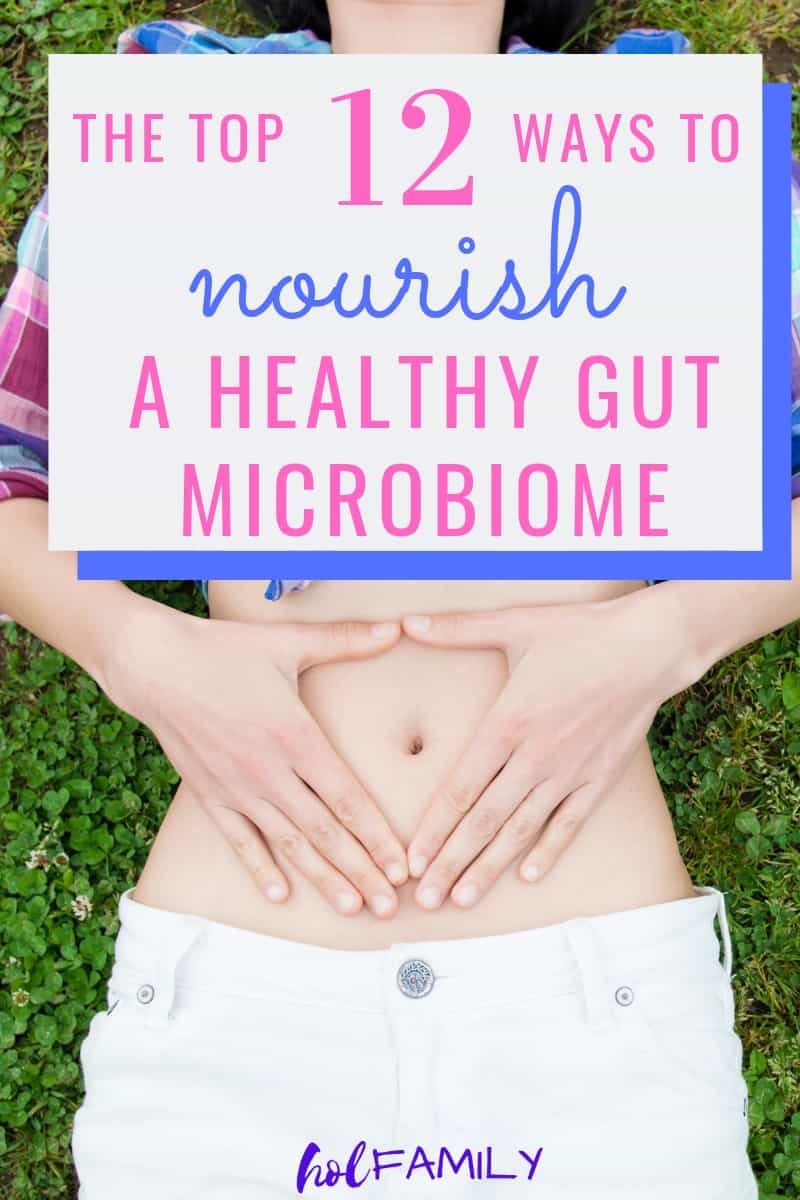
We’ve been on a bit of a cultured food kick in our home lately. My kitchen looks a little bit like a science experiment with my counters covered in jars containing funny looking floating specimens.
I have kombucha, water kefir, gluten free sourdough, fermented pickles, and sauerkraut all on the go. My husband and I often laugh because “feeding” our various ferments according to their unique schedules can be more rigorous than owning a pet!
Funny enough, needing to be fed on schedule isn’t the only thing that ferments and pets have in common. Research has shown that owning an indoor/outdoor pet and eating fermented foods are two of many ways to help create a well-diversified microbiome (in other words, a healthy gut).
The importance of a healthy gut has become mainstream news ever since the research from the Human Microbiome Project started to come out.
Since then, we’ve learned a lot about the trillions of bacteria that live in and on our bodies. It turns out, we are more “bacteria” then we are human. The average human body contains 30 trillion human cells and 39 trillion bacteria (1).
Toxins in our environment, pesticides, glyphosate, stress, and other lifestyle factors have led to “leaky gut” in the majority of the population.
When we have a leaky gut, we are literally poisoning ourselves every time we eat. Why? Because food and toxins leaking into our bloodstream cause an immune response, mounting an attack on these foreign particles.

The toxic effects from eating just one meal with a leaky gut can last for up to two weeks, meaning we are in a constant state of “metabolic endotoxicity” or chronic inflammation in the body.
This ongoing inflammation and immune response paves the way for auto-immune disease, obesity, and many other chronic health conditions.
With the growing knowledge of the gut-brain axis and the vagus nerve connection, we now know that there is a strong link between many neurological disorders (Autism, ADHD, MS, Parkinson’s, Depression, Anxiety) and the gut.
In fact, many researchers now believe that almost all disease begins in the gut.
What we do know for sure is that having a healthy, well-diversified gut microbiome is vital for overall health and longevity.
Here are the top 12 practical ways to establish a healthy gut microbiome to experience health and longevity.
1. Eat Clean
Some of the biggest offenders when it comes to our gut health are antibiotics. Broad-spectrum antibiotics are overprescribed and in 55% of cases, they are completely unnecessary.
Antibiotics harm the microbiome by killing off the good bacteria. The effects of even just one round of antibiotics can impact your gut microbiome for up to two years.
So why am I talking about antibiotics under the “eat clean” category? Because antibiotics are also abundant in our food supply from meat and dairy (many animals are given antibiotics to prevent infection), grains, fruits and vegetables (pesticides).
Even our municipal water supply is tainted with many microbiome destroying chemicals (we recommend a water filtration system – here is what we use).
What you may not realize is that pesticides like glyphosate and other chemicals being sprayed on our food supply are actually a form of antibiotics.

Glyphosate (round-up) is the worst of all because it has the selective ability to kill off our good bacteria while actually allowing pathogenic (harmful) bacteria to thrive.
Over 70% of produce contains high levels of pesticide residues that cannot be washed off because they are absorbed into the plant at the molecular level.
Avoiding these harmful chemicals may seem like a daunting task, but it doesn’t have to be. Thankfully, organic food is now readily available at regular supermarkets, local co-ops, farmer’s markets, and health food stores.
Going organic was once only for the wealthy, but prices have started to come down in the last few years as demand for pesticide free food has increased.
Check out the Environmental Working Group’s Dirty Dozen and Clean Fifteen guide to the top pesticide laden foods and the cleanest pesticide free foods. This list can be a great way to help you decide which items to always buy organic and which you can feel safe buying non-organic.
2. Have a Garden
Another great option for avoiding harmful chemicals in our food supply is to simply grow your own food!
Not only will you be saving a ton of money, but also you will be doing something great for the environment and your own health.
Growing your own produce means you will be eating foods straight from the ground. There is no need to spray pesticides or weed killers, and your food will have the highest available nutrients because it hasn’t travelled for hundreds of miles.

Having your own garden is also extremely beneficial for the gut microbiome because your hands are in the soil, getting “dirty.”
Soil-based-organisms are abundant in dirt (and in us) and for a good reason. We now know that these organisms are able to kill off harmful pathogens like bacteria, parasites and candida, detoxify the body, and even create beneficial compounds like vitamin K2, B vitamins, antioxidants, and enzymes.
If you’ve never read “Eat Dirt” by Dr. Axe, I would recommend that you buy a copy today and start learning about why soil-based-organisms are the key to healing a leaky gut and restoring health.
3. Eat the Rainbow
According to findings from the American Gut Project, eating a wide variety of foods including fruits, vegetables, grains, nuts and legumes with lots of different types of fiber will help to create healthy diversity within the gut (2).
Diversity within the microbiome has been linked to better gut health and better health overall.
Our ancestors are said to have eaten up to 600 different foods within a year. The average American diet relies upon 15 different foods (or foods made from these same 15), the predominant ones being corn, wheat, soy, tomato, and sugar.
Eating a wide variety of foods also ensures we are getting all of the different vitamins, minerals, and other nutrients we need on a daily basis.

Colorful foods also provide us with antioxidants, which play an extremely important role in gut health. Antioxidants protect the cellular lining of the gut by reducing inflammation and supporting the growth of healthy bacteria. They also work in tandem with prebiotics and probiotics, so they are a necessary component in a gut-healing diet.
4. Feed Your Gut Fermented Foods
Before we had packaged foods, refrigerators, or deep freezers, fermenting foods was one of the best ways to preserve foods.
Most cultures around the world consume various types of fermented foods, and studies have shown that the cultures with the highest fermented food consumption are also the healthiest.
Fermented foods are making headlines in the research world, as studies are linking consumption to improved outcomes in cardiovascular disease, type 2 diabetes, obesity, arthritis, mood and brain disorders, and more (3).
Fermented foods are especially important for gut health because they are abundant in enzymes that help to break food down, they improve digestion, they supply beneficial bacteria for the gut, and they increase the vitamin content of food.

One of the most fascinating aspects of research on fermented foods is that many of the health benefits they provide are from the metabolites the ferment creates in addition to the live bacterial cultures.
Another exciting feature of fermented foods is that the number of live bacterial species in just a single bite may be more than 10x that in a probiotic capsule.
Some probiotic companies have promoted their product by claiming that most bacterial cultures die in the GI tract due to the high acidity in the stomach and from bile salts. However, research has shown that the live strands in fermented foods CAN survive the gauntlet of travels through the GI tract to have a beneficial effect in the gut (4, 5).
Making your own fermented foods can be fun and surprisingly easy! Check out this kid-friendly recipe for fermented ketchup!
5. Fiber Up
Foods that are high in fiber are called “prebiotic” foods because they are the food that beneficial gut bacteria feed on.
Without enough high fiber foods in the diet, healthy bacteria in the gut starve and the protective mucosal barrier lining the gut begins to degrade.
A diet that is abundant in fiber also contributes to gut health by removing waste products efficiently. When food sits for too long in the GI tract it begins to putrify, creating toxic compounds that feed the harmful bacteria in the gut.
When it comes to types of fiber, research has shown that the best type to support gut health are soluble, prebiotic fibers like fructans and galactooligosaccharides. These types are considered fermentable fibers, because they are fermented by bacteria in the colon. Fermentation increases the amount of bacteria in the colon, and produces short-chain fatty acids (6).

Another type of fiber that acts as a powerful prebiotic is resistant starch. The body does not digest this type of fiber, so it remains intact to serve as a food source for beneficial gut bacteria.
Resistant starch also stimulates the production of a short chain fatty acid called butyrate, which plays an essential role in the health of the gut microbiome. Butyrate is the preferred energy source for the epithelial cells lining the colon.
6. Supplement Wisely
As you can see in the points above, both prebiotics and probiotics are essential for the health of our microbiome. Obtaining these through the diet is not only possible, but preferable. Unfortunately, most Western diets contain very little prebiotic or probiotic sources.
Some people with extreme dysbiosis or histamine intolerance may react poorly to a diet rich in fermented foods. Many people suffering from IBS also find that many of the prebiotics food sources (FODMAPS) cause an increase in gas and bloating.
In some cases, taking prebiotic and probiotic supplements may be a wise choice until the gut has healed enough to tolerate food sources.
Research on probiotics has shown that the majority are unable to survive stomach acid and bile salts, and even the ones that do survive are unable to colonize the human gut. We do know that probiotics have many health benefits, but they only last as long as you continue to supplement.
Soil based organisms (SBO’s) are a type of probiotic supplement made from microorganisms naturally found in soil.
These spore-forming bacteria are able to survive the harsh conditions in the digestive tract and actually colonize within the gut. Unlike the typical transient probiotics that simply pass through, probiotic bacteria spores have been shown to survive as long as 27 days following a single dose (7).
Several companies are starting to offer soil based probiotics and prebiotics. I have looked at many different brands, and my personal favorite is this one. Use the discount code holfam10 to save an additional 10% off.
7. Have a Pet
Having an indoor/outdoor pet is another great way to increase the microbial diversity in your gut. Pets that spend time outdoors digging and rolling in dirt will bring some of those microbes back into the home.
When that pet licks our face or lies down on our feet, we are being exposed to some of those microorganisms.

Having pets in the home during the first year of life may also play a role in reducing allergies and improving the immune system according to one study. Another study found that exposure to animals in early life also reduces asthma (8, 9).
Many of us living in the Western culture spend up to 90% of our time indoors, providing little exposure to a variety of bacteria. Having a dog adds diversity to the indoor microbiome by adding an additional 56 different bacterial species. Cats also provide some additional bacteria, but only 24 species compared to what dogs can bring (10).
8. Care to Go Bare
The skin is the body’s largest and fastest growing organ. It has the ability to absorb certain vitamins and minerals, as well as medications.
Being able to absorb topical magnesium or Vitamin D from the sun are wonderful, but what about all of the other things we put on our skin?
Soaps, lotions, shampoos, deodorant, sunscreen, make-up…all of these personal care products are applied to our skin multiple times a day, and many contain toxic ingredients including antimicrobials that can disrupt the microbiome.
Just like the gut, the skin also has a microbiome. The microorganisms on the skin are often the first line of defense against pathogens and they play an important role in our cutaneous immune system (11).
Many skin conditions like acne, eczema, and psoriasis are associated with an altered microbial state (dysbiosis). When we heal a leaky gut, many of these skin conditions disappear.
What we put on our body is just as important as what we put in our body. If you wouldn’t eat it, you shouldn’t be putting it on your body.
Many companies are creating safe and clean personal care products, and everything can be made at home using simple ingredients like essential oils and coconut oil.
9. Reduce Stress
In a world that is always moving, always demanding, and always evolving, it is easy to get caught up in the belief that we have to keep up with it all. It is often said that stress is the number one killer because it leads to so many chronic diseases.
It turns out, stress is also extremely harmful for the microbiome. According to research, being exposed to high levels of stress changes the composition of the microbiome in a negative way (12).
It is important to take time to reduce stress, practice self-care, and laugh on a daily basis. Prayer, meditation, journaling, and going for a walk outside are all excellent ways to reduce stress and support a healthy microbiome.
10. Get Some Shut Eye

One of the most fascinating discoveries has been that our microbiome is regulated by circadian rhythm just like the rest of our body (13).
And it turns out, the relationship between the microbiome and sleep is a two way street. Lack of sleep can disrupt the health of our microbial environment and an unhealthy gut can also impact our sleep.
Research has shown that even mild sleep disturbance can shift the microbiota in such a way that beneficial bacteria decrease, microorganisms linked to obesity and type 2 diabetes increase, and there is a marked decrease in insulin sensitivity (14).
The gut microbiome is often considered our second brain because it houses our nervous system and around 100 million neurons. Many neurotransmitters and hormones associated with sleep – serotonin, dopamine, GABA, and melatonin – are produced and released in the gut.
It is easy to see why an altered gut microbiome can lead to poor sleep.
11. Stop Being So Clean
Our population has a collective obsession with being clean. We sanitize our homes, use antibacterial soaps and hand gels, and scrub the dirt off of our produce. Gone are the days when kids played in the dirt, exposing them to a wide range of microorganisms.
The home also has a microbiome, and it plays an important role in interacting with our own microbiome and stimulating our immune system. We all need to stop being so clean.

Hand soaps and cleaners that are “effective against 99% of bacteria” are killing the good guys too.
Get house plants to help remove unwanted toxins in the air, get a dog, and clean your home using water. For toilets and kitchen counters, you can use some homemade cleaners with essential oils. But otherwise, all of the harsh chemical cleaners are not only toxic, they are harmful to our microbiome.
12. Heal Your Leaky Gut
According to Hippocrates, all disease begins in the gut. With the onslaught of toxins and lack of real food in our diets,
the question isn’t “do I have leaky gut,” but rather “how bad is my leaky gut?”
Making all of these changes can be a great place to start when it comes to healing a leaky gut, but if you are experiencing health issues as a result of severe dysbiosis…it may not be enough.
Years of antibiotic use, a poor diet, lack of sleep, stress, and ongoing exposure to toxins all play a role in leading to leaky gut and the chronic health issues that come along with it.
Too many times, we are looking for a band-aid approach to our health. Even many “natural solutions” are only looking at reducing symptoms and not getting to the underlying root of why we are getting sick in the first place.
The symptoms are not the problem; they are important signals that the body is sending to tell us something is wrong. Most probiotics, supplements, and “healing diets” are only providing temporary relief.

Real healing requires a multi-faceted approach. First, you must remove the triggers that are causing the leaky gut. Next, you need to repair and rebuild the gut lining, restoring a healthy garden of microbiota. And finally, you need to fix the root causes of why the gut became leaky in the first place.
One of the key steps in this process, is the type of foods that you are eating. Foods can harm our guts, or help to heal a leaky gut.
I’ve put together a list of the top ten foods to heal a leaky gut. This list provides the most beneficial foods for reducing inflammation, healing the intestinal walls and mucosal lining, and reseeding the gut with the beneficial prebiotics and probiotics for a healthy and thriving microbiome.
This list is my gift to you to start you on your own healing journey. Click here to grab your free printable list of the top ten healing foods for leaky gut, and start to reclaim your health today.

